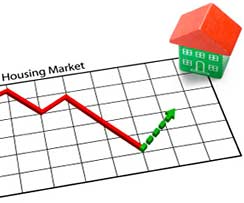 Auctions are an age old phenomena. People have been selling their properties through the process of auctions for centuries. But the popularity and respectability of auctions has experienced a great hike in past few years.
Auctions are an age old phenomena. People have been selling their properties through the process of auctions for centuries. But the popularity and respectability of auctions has experienced a great hike in past few years.
Jeff Adams, one of America’s top real estate consultants and is going to pull out some interesting tips and tricks of the trade for you, from his vast pool of experience in this field for many years.
Real estate auctions – a rising trend
In the earlier times auctions were not seen in a very favorable light. More often than not they were considered to be the last resort for selling a property when none of the other traditional means of liquidating it have worked in favor of the seller.
In recent times, however, this perception has been gradually changing. Many sellers are now voluntarily choosing to put their lands and houses for auctions. Many are opting for the services provided real estate brokers to help them get maximum rates for their properties through auctions.
So what is a real estate auction?
A real estate auction is just another effective way used for selling a property such as a house or land. This process is different from its traditional counterparts in some ways. Unlike the other methods, an auction is always a faster and more intense method of selling a real estate involving public sale of a property. The various methods used under the process of an auction include open cry, competitive bidding, etc.
Important features of a profitable real estate auction
A property can be put on an auction if the owner of the property wants to do so in the hope of getting a fair price for his property. However, he should have a good equity position of auctioned properties in which case he can avoid paying for the sales commissions.
The timing is another important factor. Auctioning a property while the market for those properties is on a rise is important.
A real estate auction can be a win-win situation to all the parties involved in the sale. Following are a few benefits you can expect when you put your property on an auction whether you are a seller, buyer or a realtor. Let’s see them one by one.
Benefits of a real estate auction to the seller
When auctioning a real estate, you have the freedom of setting a price which is higher as compared to the value in the going market. This will be the minimum price you will be expecting to get. By setting this minimum desired amount, you avoid any risk to buy the property back in case it fails to fetch the set price.
Additionally, by opting for a direct auction, you will avoid the need to pay sales commission to auction houses which is normally about 8%-10% of the property value.
Auction a property that is not in use can save a lot of maintenance expenses. Also, being a quick method of disposal of property, it saves you long-term costs including taxes and maintenance.
You get a huge exposure for the property as a large number of pre-qualified buyers attend an auction.
Not only that the sale of the property at its real value in the market is assured, but the competition created by an auction among the buyers can also benefit you greatly by fetching a much higher price for the property than its true market value.
Benefits of a real estate auction to the buyer
It is a smart way of investing. Through the process of competitive bidding, the properties are usually bought at a fair market value.
In a multi-property auction, you get a great variety of properties on display at the same time giving you a wide range of choice for investment.
You as a buyer have the choice of deciding the purchasing price.
Long negotiation periods and time of purchase can be avoided in auctions.
You are aware of the purchasing and closing dates and that you are involved in a fair competition on equal terms as other buyers in the market.
Benefits of a real estate auction to the realtor
Through an auction, you are offering your customers a new and exciting way of selling their properties. This increases their interest in your services and its perceived value.
It helps you develop your market niche and increase your revenue and share in the market.
Not only does an auction make the property visible to a great number of potential buyers but it also brings a large number of people to you property listings which include other types of property deals as well. This gives your business an overall increased exposure.
An auction is an interesting and entertaining way of selling or buying a property. For an experienced buyer or a person with reasonable research and understanding of the process, it can certainly fetch exciting deals.
###

 Foreclosures are not a very recent phenomenon. Even in earlier times, when the term was not coined, foreclosures occurred; however, with a few alterations in the process as we know it today.
Foreclosures are not a very recent phenomenon. Even in earlier times, when the term was not coined, foreclosures occurred; however, with a few alterations in the process as we know it today. An ordinary investor is often confused and confounded where to put in his hard-earned savings for good returns. According to Jeff Adams, a veteran
An ordinary investor is often confused and confounded where to put in his hard-earned savings for good returns. According to Jeff Adams, a veteran 

